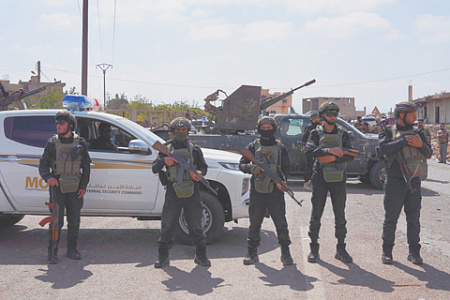
A fragile ceasefire has taken hold in Syria’s southern As-Suwayda province, halting a week of fierce clashes between local Druze militias, Bedouin fighters, and Syrian security forces. The truce was brokered through an unlikely agreement between Syria’s transitional government and Israel, which had unleashed a wave of airstrikes in the region just days earlier to protect the embattled Druze population.
Syria’s transitional Interior Ministry announced on the night of July 20 that government forces had been deployed to separate the warring factions and that hostilities had ceased. President Ahmed al-Sharaa formalized the comprehensive ceasefire, calling on all parties to protect civilians and allow for the unimpeded delivery of humanitarian aid. The agreement is set to unfold in three stages: securing the area, distributing aid, and finally, restoring state institutions and integrating the province back into the central government’s framework.
Israel’s role was pivotal and complex. On July 14, it began a significant bombing campaign across southern Syria, with strikes reaching Damascus, framing its intervention as a necessary defense of the Syrian Druze. The subsequent diplomatic turnaround saw Israel, which has long opposed the presence of the Syrian army near its borders, agree to the deployment of forces controlled by Damascus to enforce the peace. This concession was critical to securing the deal, which reportedly gained the acceptance of Hikmat al-Hijri, a prominent and hardline Druze spiritual leader.
According to sources cited by Reuters, the initial crisis may have been sparked by a miscalculation in Damascus. Syria’s transitional government, feeling emboldened by what it perceived as supportive messages from the United States regarding national unity and by the nascent process of normalization with Israel, may have acted with “excessive self-confidence” in its initial military move into As-Suwayda.
In his national address, President al-Sharaa accused the Israeli government of Prime Minister Benjamin Netanyahu of pushing the country toward a “dangerous phase” with its intervention. He also thanked the US, EU, Russia, and China for their positions condemning the violation of Syrian sovereignty. Al-Sharaa was quick to reassure the country’s minorities, stating that “the province of As-Suwayda remains an integral part of the Syrian state, and the Druze are a fundamental part of the Syrian national fabric.”
While the fighting in Syria has paused, the conflict has created a significant domestic challenge for Israel. The events in As-Suwayda mobilized Israel’s own influential Druze community, many of whom serve in the Israel Defense Forces (IDF). According to reports, nearly 2,000 Israeli Druze from the IDF and security services signed a public letter declaring their readiness to join the fight in Syria to protect their brethren. This has raised serious concerns within Israel’s security establishment, highlighting how a regional de-escalation has ignited a sensitive and unresolved issue at home.
